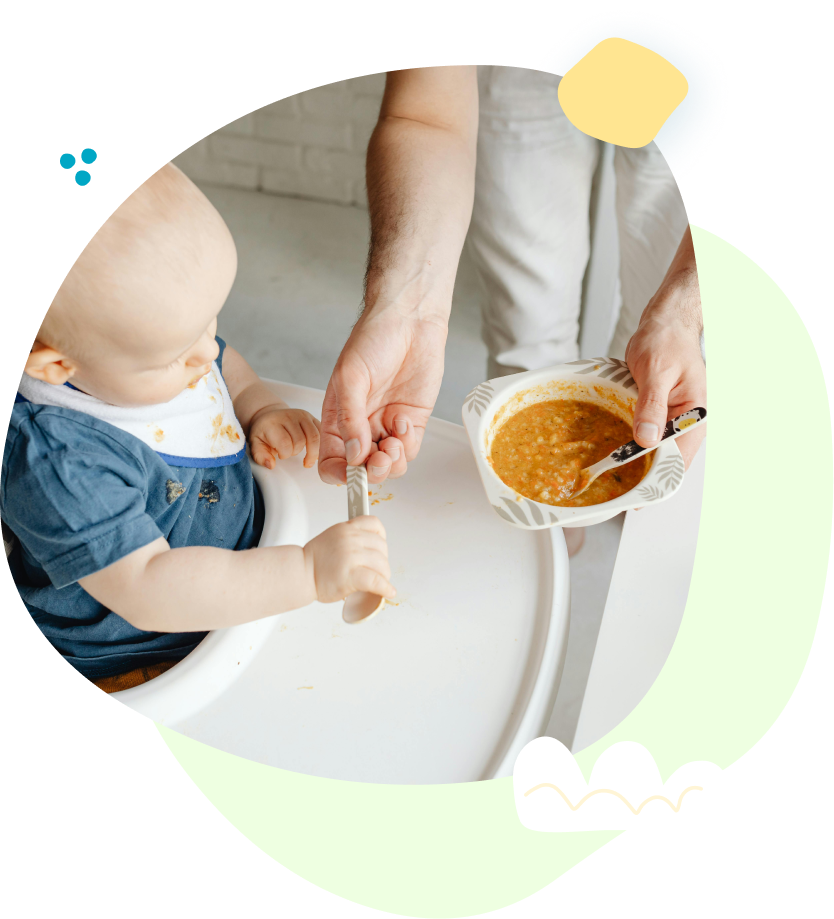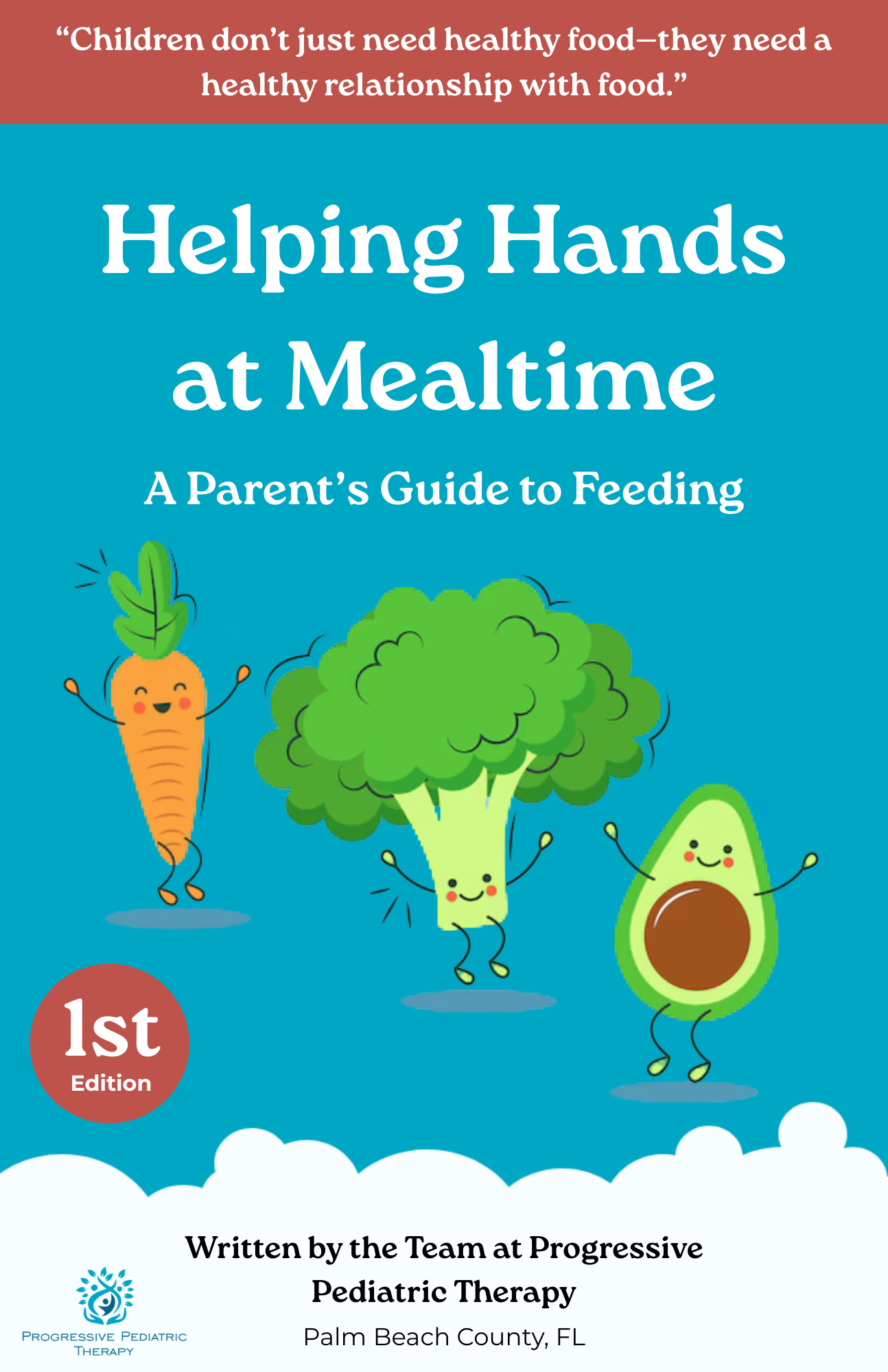Your Clinic
SET A LOCATION
Your Clinic
SET A LOCATION
Feeding challenges can arise at any stage, from infant bottle feeding to transitioning to table foods, and even in older children who face oral-motor difficulties or strong feeding aversions. These challenges not only affect a child's nutrition and development but can also lead to stress during mealtimes. Occupational therapy (OT) and speech therapy provide comprehensive support tailored to each stage of feeding development, helping children and families achieve positive mealtime experiences.
Feeding challenges manifest differently at various ages, requiring customized strategies to address them effectively.
Difficulty latching, fussiness during feeds, or rejecting the bottle entirely.
Resistance to new textures or gagging on smooth foods.


Hesitation or difficulty with chewing and swallowing solids.
Narrow food preferences or aversion to certain textures, tastes, or colors. PPT offers parent tips for picky eaters.
Weakness or poor coordination in chewing and swallowing muscles, leading to gagging or choking.
Anxiety or refusal to eat specific foods or entire food groups due to sensory sensitivities or past negative experiences.
Mealtime avoidance, prolonged feeding times, or disruptive behavior.

Early intervention at any age is essential to prevent long-term effects on growth, nutrition, and family dynamics.
If your child eats only a few “safe” foods, avoids entire food groups, or shows intense fear around eating, it may be more than picky eating. These behaviors can be signs of Avoidant/Restrictive Food Intake Disorder (ARFID).
ARFID is not related to body image. It’s often connected to sensory sensitivities, fear of choking or vomiting, or past negative experiences with food.
Learn how feeding therapy can help your child develop a healthier relationship with food.
Occupational therapists provide holistic solutions to address the sensory, motor, and behavioral aspects of feeding. Speech-language pathologists bring expertise in oral-motor skills and swallowing function, making them a key part of the feeding therapy team.
Helping children manage sensitivities to smells, textures, and tastes through gradual exposure and sensory integration techniques.
Developing the strength and coordination needed for effective chewing, swallowing, and self-feeding. Using exercises and tools to strengthen muscles and improve food manipulation and swallowing.
Teaching families mealtime routines and positive reinforcement techniques to reduce stress.
Addressing coordination issues between sucking, swallowing, and breathing.
Teaching strategies for safely introducing table foods, including pacing and modified textures.
Helping children overcome anxiety or discomfort related to specific foods through gradual desensitization and confidence-building.
Feeding challenges affect the whole family, and therapy offers tools and strategies to support everyone involved:
Step-by-step plans to address specific feeding concerns, tailored to your child’s age and needs.
Insights into feeding development and ways to encourage progress at home.
A multidisciplinary approach that may involve dietitians, medical professionals, and therapists.
If your child is experiencing any of the following, it may be time to consult an occupational or speech therapist:
Difficulty latching, swallowing, or transitioning to solids as an infant.
Resistance to textures or chewing challenges in toddlers.
Ongoing feeding aversions or oral-motor difficulties in older children.
Feeding struggles can feel overwhelming, but you don’t have to face them alone.
Download our free e-book, Helping Hands at Mealtime, and get expert-backed tools for:
From bottle feeding to self-feeding, this guide walks with you every step of the way.

Feeding challenges can be daunting, but with the right support, your child can achieve meaningful progress at any stage of development. Occupational and speech therapy provide individualized strategies to help children master feeding skills and create a more positive mealtime environment for the whole family.
Contact Us Today to learn how we can support your child’s feeding journey, from infancy to childhood and beyond!
We empower children, families, and the community to learn, grow, and celebrate every child's unique abilities.
Quick Links
Contact Details
Phone: 561-376-2573 | 561-918-0190
Fax: 561-218-4939
VIP Concierge: 561-717-1764
Clinic Locations
All Rights Reserved | Progressive Pediatric Therapy, Inc. | Privacy Policy | Terms of Service
Site by Spearlance